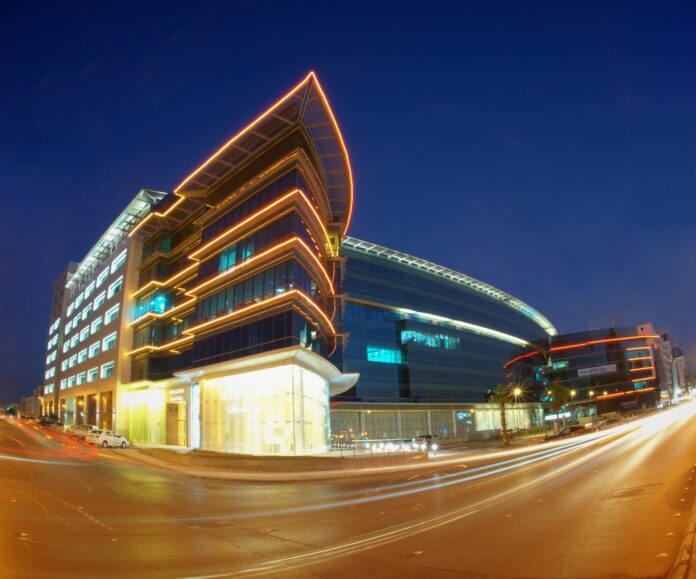The kingdom’s groundbreaking national occupational standards for the Tourism Sector (NOSS) initiative aligns with Vision 2030, positioning Saudi Arabia as a leader in global tourism workforce excellence.
Saudi Arabia has made a significant leap in enhancing its tourism sector with the launch of the “Pathways to Progress: Crafting National Occupational Standards for the Tourism Sector” (NOSS). This innovative initiative, introduced by the Saudi Ministry of Tourism, aims to set new global benchmarks for occupational skills standards within the tourism industry. It aligns seamlessly with the Kingdom’s Vision 2030, which seeks to diversify the economy and boost the tourism sector’s contribution to national development.
The NOSS framework represents a comprehensive approach to tourism workforce development, incorporating advanced training methodologies and industry best practices from around the world. The initiative involved an extensive benchmarking study, comparing Saudi Arabia’s framework with those of eight leading nations, including Germany, the UK, and Australia. This rigorous comparison ensures that Saudi Arabia integrates the highest global standards into its tourism training programs.
Embed from Getty ImagesOne of the key features of NOSS is its integration with educational and training institutions across the Kingdom. This connection guarantees a steady supply of skilled professionals ready to meet global standards. Additionally, NOSS offers internationally recognized certifications, enhancing the global competitiveness of Saudi Arabia’s tourism workforce.
The economic impact of NOSS is already evident. In 2023, tourism’s direct contribution to Saudi Arabia’s GDP ranged between 4 and 4.4 per cent, surpassing pre-pandemic levels. The sector provided 925,500 direct jobs, accounting for 5.8 per cent of total employment—a remarkable 62 per cent increase from 2019 levels. By 2030, the tourism sector aims to double its GDP contribution to 10 per cent.
Moreover, Saudi Arabia’s commitment to sustainable tourism is highlighted by its ranking as 15th globally for reducing greenhouse gas emissions in the travel and tourism sector. Between 2010 and 2019, the Kingdom achieved an average annual decrease of 2.8 per cent in emissions, underscoring its dedication to eco-friendly tourism practices.
NOSS has also established partnerships with leading global tourism and educational institutions to exchange best practices and insights. The initiative’s success is already visible in several key achievements. In 2023, Saudi Arabia welcomed over 100 million tourists—both inbound and domestic—seven years ahead of its Vision 2030 timeline. Inbound tourism increased by 56 per cent, and total tourism spending rose by 37 per cent compared to 2019. Leisure tourism saw the most significant growth, up by 153 per cent compared to 2022.
Domestic tourism also experienced substantial growth, with 81.9 million domestic tourists in 2023—an increase of over 71 per cent from 2019 levels. The NOSS initiative has been instrumental in promoting gender equality within the tourism sector. By Q1 2024, women’s participation in the tourism workforce reached over 45 per cent, a significant rise from 39 per cent in 2020 and just 5 per cent in 2016. This increase reflects the initiative’s success in fostering a more inclusive workforce.
Additionally, programs like “Tourism Pioneers 2” have played a crucial role in preparing nearly 500,000 Saudis for careers in tourism since 2019. The NOSS initiative exemplifies Saudi Arabia’s commitment to revolutionizing tourism workforce development by integrating global best practices, fostering international collaboration, and driving sustainable economic growth.
As Saudi Arabia celebrates this milestone, it continues to strengthen its position as a global leader in the tourism sector, setting new standards for workforce excellence and sustainable development.
Analysis:
Political: The launch of NOSS demonstrates Saudi Arabia’s strategic focus on enhancing its tourism sector in alignment with Vision 2030. Politically, this initiative reflects the Kingdom’s broader goal of economic diversification and its commitment to positioning itself as a leader in global tourism. By setting a new benchmark for tourism workforce development, Saudi Arabia not only enhances its domestic capabilities but also influences international standards, reinforcing its role as a key player on the global stage.
Social: The NOSS initiative addresses significant social changes by promoting a more skilled and inclusive tourism workforce. By incorporating international best practices and offering globally recognized certifications, NOSS elevates the quality of tourism services and fosters greater public trust in the sector. The increased participation of women in the tourism workforce highlights a positive shift towards gender equality and inclusivity, aligning with broader social reforms aimed at empowering women and promoting diversity.
Racial: While NOSS primarily focuses on skills development and training, its impact on racial inclusivity is indirect. By setting global standards and integrating best practices, NOSS may contribute to a more equitable and diverse workforce. Ensuring that all demographic groups, including racial minorities, have access to quality training and employment opportunities is crucial for fostering a truly inclusive tourism sector.
Gender: The emphasis on gender inclusivity is a standout feature of the NOSS initiative. The significant increase in women’s participation in the tourism workforce—from 5 per cent in 2016 to over 45 per cent in 2024—demonstrates the initiative’s success in promoting gender equality. By providing training and certification opportunities tailored to women, NOSS supports the Kingdom’s broader efforts to empower women and enhance their role in the economy.
Economic: Economically, NOSS represents a strategic investment in Saudi Arabia’s tourism sector. By boosting the sector’s contribution to GDP and creating thousands of jobs, the initiative supports the Kingdom’s economic diversification goals. The alignment with Vision 2030’s objectives underscores the economic significance of NOSS, which drives growth in tourism, enhances job creation, and supports sustainable development practices. The notable increase in tourism-related employment and spending highlights the positive economic impact of this forward-thinking initiative
